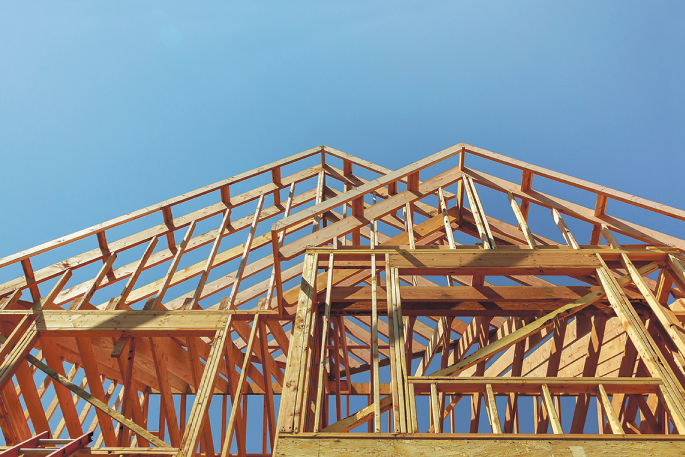Energy efficiency ratings for buildings are on hold, while the government decides whether to intervene to improve the country's housing.
Building energy efficiency ratings - similar to the star-rating on home whiteware - indicate how much a home or commercial office would cost to heat in winter and cool in summer.
Building industry leaders who support the ratings say experience overseas shows once tenants and buyers can see a building's running costs, owners start raising the quality. Australia, the UK and other countries have ratings schemes.
Under changes drafted - but not passed into law - by Labour, some large offices and apartments are in line to start disclosing their energy efficiency. The law change is due to happen this year, under a programme called 'Building for Climate Change'.
The programme is also aimed at tackling emissions from construction, improving housing's resilience to extreme events, and lowering the energy used to operate new homes and commercial buildings by upgrading the building code.
When he took over the job, Building and Housing Minister Chris Penk was warned by officials that the building code had not kept up with climate change. Tackling this was one of four top priorities he was urged to act on.
The Minister says Cabinet has not decided whether to bring in compulsory ratings, though he appreciates people are familiar with the concept from seeing ratings on appliances such as fridges. He says it has been raised with him that labels could be seen on a fridge, but not a house.
The issue of whether to raise minimum energy efficiency standards on new homes, or the option of purely voluntary incentives, is also under consideration.
"There are positive moves by the sector, so the question is do allow nature to take its course or do we push things along a little bit. Are there changes we can make to encourage people in that direction, maybe giving them an easier ride through consenting process (for new builds), or using government procurement to show leadership in that space," says Penk.
Before the election, Labour raised insulation standards for new homes.
Penk said he wanted to see how that went before bringing in any further requirements.
'One of the worst building codes in the OECD'
In a regulatory impact statement, government officials estimated Labour's plan requiring ratings to be displayed on some buildings would generate $1.7 in benefits for every $1 spent, despite not covering all homes and buildings.
Green Building Council head Andrew Eagles believes the real costs will be lower, and the relative benefits higher, based on experience in Australia.
Constructing and operating buildings makes up to 21 per cent of New Zealand's carbon dioxide emissions, or about 10 per cent of total greenhouse gases (including methane).
The traditional issue with existing homes is cold and damp, but Eagles says new builds can also be inefficient, for other reasons.
Heatwaves are in line to get worse with climate change, meaning more new homes overheating in summer, he says.
"We are getting frequent reports of, particularly apartments and terraced homes, significantly overheating and that's a real issue if you have elderly people or vulnerable people like infants in the household. We're building tens of thousand of homes each year and many of them are going to need retro-fit measures."
Eagles says New Zealand has been slow to upgrade its building code compared with countries like Australia and the United Kingdom.
"New Zealand has one of the worst building codes in the OECD."
He says even without compulsory building code improvements, having to calculate an energy efficiency rating on a new home at the design stage would force designers and owners to think more deeply about qualities like shade and ventilation.
A new build can last 60-100 years, meaning today's new homes were locking in energy use for decades, he says.
Fletcher Residential and Development chief executive Steve Evans agrees overheating can be a problem in new builds - though he would like to see existing homes be part of any ratings scheme, since they made up the majority of houses.
He says the new insulation standards are going well, and the added wall insulation and other improvements they required are providing "significant" benefits to people by keeping out cold and damp.
But he says the warmer materials can "create their own issues" if not properly designed to prevent overheating.
Evans would like to see energy ratings made mandatory on all houses that go up for sale.
"Besides pulling out the electricity and gas bills... and saying 'oh that seems high', there is no common platform where people can say this is a good house or this is not a good house.
"Most buyers have no idea."
Action on buildings and energy use will be part of the government's Emissions Reduction Plan, which has to be released by the end of this year.



0 comments
Leave a Comment
You must be logged in to make a comment.